How to Avoid Chargebacks and the MATCH List
October 25, 2024
How to Check the Mastercard MATCH List
December 15, 2024What Happens When You’re On The Mastercard MATCH List
Mastercard created a comprehensive database to protect their consumers from fraud, to keep compliance and industry standards high, and to ensure businesses are run smoothly and honestly. However, being placed on the Mastercard MATCH List might not be through any fault of your own, and it can have severe consequences. If you found out you’re on the MATCH List and are wondering what to do, we can help you. Keep reading to learn the five ways the MATCH List impacts your life and how to get early MATCH List removal to save your business.
What is the Mastercard MATCH List?
The Mastercard Alert To Control High-risk Merchants (MATCH Pro) system allows an Authorized User to assess potential risks associated with a Merchant before enabling Mastercard acceptance, with the opportunity to develop and review enhanced or incremental risk information before entering into a Merchant agreement.
MATCH Pro is a mandatory system for Mastercard Acquirers, unless exempted by Mastercard or prohibited by law. The MATCH Pro database includes customer-reported information about MATCH Merchants (and their owners) that an Authorized user has terminated. When an Acquirer considers onboarding a MATCH Merchant, MATCH Pro can assist Acquirers with risk determinations during onboarding. By making independent risk determinations, Acquirers are able to add MATCH Merchants who have been added to MATCH PRO.
MATCH Pro APIs provides Acquirers with the ability to develop an automated system-to-system method to access MATCH Pro and to receive a real-time response.
Why Am I On The MATCH List?
If you have been placed on the MATCH List, you likely found out through your payment processor or bank. Unfortunately, they do not need to tell you why they placed you on it. Since the MATCH List was created to protect consumers, that is who is in their best interest—not you.
There are 13 ways you can be placed on the MATCH List:
- Account Data Compromise
- Common Point of Purchase (CPP)
- Laundering
- Excessive Chargebacks
- Excessive Fraud
- Mastercard Questionable Merchant Audit Program
- Bankruptcy/Liquidation/Insolvency
- Violation of Standards
- Merchant Collusion
- PCI Data Security Standard Noncompliance
- Illegal Transactions
- Identity Theft
The two most common reasons businesses are placed on the Mastercard MATCH List are excessive chargebacks and PCI Data Security Standard Noncompliance. Check your chargeback rate—if it is above 1%, chances are this is why you are on the MATCH List. In addition, if you have recently had a data breach, this violates the PCI Data Security Standard and is likely why you are on the MATCH List.
If neither of these things is true and you are unsure of why you are on the MATCH List, there are two ways you can find out.
- Call your payment processor. You can call your processor to ask why you were placed on the MATCH List so that you can work to either correct the issue or appeal the issue.
- Get professional help. If your processor won’t disclose why you are on the list, give us a call. We can help you.
Ways the Mastercard MATCH List Impacts Your Business
Finding out you’re on the MATCH List can be devastating not only for your business but for you personally. There are so many ways being on the MATCH List can affect you, including the fact that you cannot accept credit cards anymore, all of your personal information is on the list, you will be labeled as high-risk, you will have to wait five years to age off it, and you might lose your business entirely.
You Can’t Accept Credit Cards Anymore
The most major impact of being placed on the MATCH List is that you will no longer be able to accept debit or credit card payments. This is the livelihood of most businesses. There are so many rules to accepting payments via cash apps, which can run you into more trouble.
Sure, you can change to a “cash only” business, but how many people carry around cash these days? Consumers want to be protected by their banks and enjoy the security of their purchases, which is why credit and debit cards are the preferred method, aside from convenience.
All Your Information Is On It
The MATCH List is pretty comprehensive. There is a lot of information on it by design to protect consumers from fraudulent businesses looking for loopholes to continue doing business. Moreover, Mastercard does not assess the accuracy of MATCH listings, so it cannot be changed if something is incorrect or damaging.
The information that will be placed on the MATCH List, if available, includes:
- Business Legal Name and DBA
- Business Address
- Business Phone Number
- Business Tax ID
- Business URL
- Principal Owner Name
- Principal Owner Address
- Principal Owner Phone Number
- Principal Owner Tax ID
- Account Opening Date and Termination Date
- MATCH Reason Code
You’ll Be Labeled “High-Risk”
Once you have been placed on the MATCH List, you will have a “high-risk” label on your back, and this can make it extremely difficult to continue doing business. Some high-risk merchants will accept businesses that are on the MATCH List; however, not all of them will.
While this might sound like good news, there are many downsides to being a high-risk merchant. They include paying very high fees to your high-risk processor, being stuck in lengthy contracts that are difficult to get out of, and adhering to very strict terms.
You Have to Wait 5 Years to Age Off It
Wondering when you will be able to go back to business and put this MATCH List mess behind you? If you play by their rules, you will have to wait five full years until you are aged off the list. The good news is that all your information will be wiped clean from it and you can go back to having a regular merchant account as usual and accept card payments again.
The downside is that your business will likely not survive this wait. Even if you become a high-risk merchant with a high-risk processor, their contract terms will likely keep you locked in past the five-year mark, forcing you to pay high rates for way longer than you need to.
You Might Lose Your Business
Let’s not beat around the bush here. Simply put: Not being able to accept credit cards for five years puts you in a high likelihood of completely losing your business. According to Forbes, around 84% of people primarily use cards (credit and debit) for payments, while only 16% primarily use cash. This means your earnings will be slashed by 84%, putting you in an extremely difficult position.
How to Get Off the Mastercard MATCH List Early
Waiting the full five-year penalty period to age off the MATCH List is very unrealistic for most people. So is becoming a high-risk merchant, paying extremely high fees, and being locked into a lengthy, difficult contract.
Luckily, you can seek early removal from the MATCH List.
Merchant law is difficult to navigate. TFM Law can help you get back to business and put this mess behind you, even if you have no idea how you were even placed on the MATCH List to begin with.
Early Removal The Easy Way with TFM Law
Do not lose your business! If you have found yourself on the Match List, you have options.
You do not have to wait the five-year period to take action. You can get back to business ASAP.
The Law Offices of Theodore Monroe focuses on litigation and counseling in:
- Payments
- Credit card processing
- E-commerce
- Direct response marketing
- Federal Trade Commission enforcement
Last year, the firm removed 100% of the people who came to us from the MATCH list. Are you ready to be next and get back to work?
Theodore F. Monroe, Founder of TFM Law, has successfully:
- Represented merchants recovering funds from processors
- Structured processing relationships to comply with Card Brand requirements
- Drafted and negotiated contracts involving payment facilitators and ISOs
- Represented continuity merchants in compliance and litigation issues
- Fought for numerous companies in suits brought by the Federal Trade Commission and obtained excellent results for firms in the digital products, loan modification, government grant, and nutraceuticals industries
Before opening his firm, Mr. Monroe practiced law with Crosby, Heafey, Roach & May (now Reed Smith LLP) and Lewis, D’Amato, Brisbois & Bisgaard (now Lewis, Brisbois, Bisgaard & Smith), where he defended numerous accounting and law firms in professional liability actions, and insurance carriers in bad faith actions.
Before becoming a lawyer, Mr. Monroe worked as a forensic accountant at Coopers & Lybrand, which provided him with a unique background in forensic accounting and financial analysis among litigators in Los Angeles. Mr. Monroe studied at Duke University Law School, achieved a BS with Honors in Accounting from the University of Kentucky, and is a member of the California State Bar and the Kentucky State Bar.
For more information and to schedule a consultation, visit us at HowtoGetOffMATCH.com




